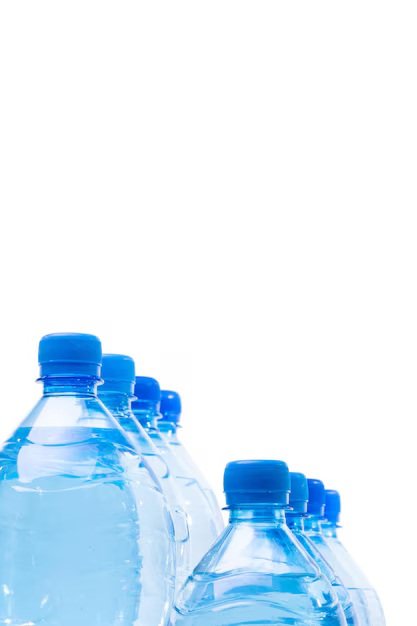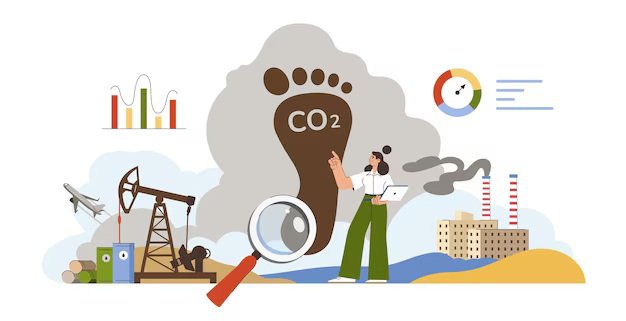Zero Waste Grocery Chain Expands to South Park San Diego With Community Refill Hub
South Park, a walkable neighbourhood known for its small businesses and block parties, is getting a new kind of grocery store: a refill-first, low-packaging shop that doubles as a community space. The business, Origins Grocer, which launched in North Park in 2024, is opening a second location at 2361 30th Street and plans a soft opening on September 12, 2025. The new shop will offer bulk staples, a refill station for pantry and home products, fresh goods, and space for workshops and community events — a hybrid of grocery, refillery and neighbourhood hub aimed at lowering packaging waste while supporting local producers. According to San Diego Magazine, the owner, Maria Herrera, describes the venture as a way to “give people an option to shop with less waste and more intention.”

Why a Refill Hub Matters for San Diego’s Waste Goals
San Diegans already have citywide momentum on waste reduction, as a 2023 report by the City of San Diego showed a record-high 71% diversion rate in 2022, meaning more material was kept out of landfills than ever before — a milestone that city leaders say reflects stronger recycling, composting, and related programs. A neighbourhood refill hub fits into that wider picture by addressing the upstream problem of single-use packaging and giving households practical alternatives to one-way plastics. The city’s diversion success is supported by data from CalRecycle and the City’s Environmental Services Department, which officials often cite when encouraging innovations that reduce packaging and food waste.
Refill systems are not a weakness of scale alone; research and industry reports indicate that they can deliver real environmental benefits when designed and implemented effectively. The Ellen MacArthur Foundation — a leading voice on circular economy solutions — has mapped how returnable and refillable packaging systems can be scaled profitably and reduce raw material demand when businesses and logistics work together. Its analysis highlights that reuse models require coordination across suppliers, cleaning and logistics, and clear incentives for consumers to return or refill containers. According to the Ellen MacArthur Foundation, scaling returnable packaging demands system-level change but offers meaningful environmental gains.
Industry data also points to market momentum: refillable and reusable packaging lines were estimated in the tens of billions of dollars in recent forecasts, showing that consumer demand and retailer pilots are expanding. Smithers’ market analysis found refillable and reusable packaging sales were substantial in 2022 and projected continued growth, suggesting the financial case for refill models is strengthening.
Maria Herrera’s Journey Shows How Practical Habits Can Spark a Broader Community Movement
Maria Herrera’s story is the human side of this shift. Born in the Dominican Republic and later working in project management, Herrera opened Origins as a way to connect food, local makers, and a less wasteful shopping routine. Her approach is deliberately pragmatic: she avoids preaching perfection and instead offers practical, low-barrier steps — like refill stations and bulk bins — so customers who want to cut packaging can do so without making dramatic lifestyle changes. San Diego Magazine reported Herrera explaining her goal as helping people take “baby steps” toward less waste. Her shop’s promise — to carry local eggs, coffee, spices, refillable cleaning and beauty supplies, and to host workshops — reflects a model that pairs commerce with education and social ties
Customers in North Park and surrounding neighbourhoods have already provided early validation. Shoppers report being drawn to the ability to buy mission-aligned local products, to top up favourite items instead of buying a new bottle, and to participate in a retail space that values community. Those experiences are important because research shows convenience and familiarity are the two largest drivers of consumer behaviour in reuse systems: people are much more likely to adopt refill habits if the process is simple and fits into existing routines. The global landscape analysis of reuse and refill solutions found that uptake increases when ease-of-use and clear benefits are present, and that information and incentives matter.
Local officials are watching too. City leaders have linked neighbourhood action to municipal goals: when the city announced its diversion milestone, officials framed community participation — including businesses that reduce packaging and compost food scraps — as a key part of continued progress. In 2023, the City press release accompanying the diversion announcement emphasised collaboration across the community, government and businesses to reach zero-waste ambitions. Joe LaCava, a city council member, was quoted as noting the importance of public engagement in reaching those targets. These local voices show how a small store can plug into larger municipal strategies to cut waste and strengthen local economies.

What This Means for Shoppers — Practical Advice and Next Steps
If you live in or near South Park and want to try refill shopping, here’s a short plan that reflects how people in similar neighbourhoods have succeeded and what research recommends.
Bring any clean, solid container you already own; most refilleries will weigh it empty, let you fill, and then charge you only for the product weight. Shop with a small list to reduce decision fatigue; first-time refilling is easier when you swap one or two staples (coffee, rice, detergent) rather than your whole pantry at once. Ask staff where excess or near-dated food goes; reputable zero-waste stores often compost or partner with local programs. Participate in store events and workshops — they’re where customers learn tips, meet local producers, and get social nudges that change habits.
From an industry perspective, the wider evidence suggests refill models scale when retailers solve three practical problems: make refills convenient (easy containers and quick refill flows), ensure hygiene and quality control (clear cleaning and labelling protocols), and make business logistics cost-effective (standardised containers or local cleaning loops). Trials in the UK and elsewhere show these are solvable problems: for example, a high-profile trial by a major online supermarket showed reusable containers could be designed to last many uses if collection and cleaning are handled properly. The Guardian reported that Ocado’s reuse trial produced reusable containers that can be used more than 60 times in trial conditions — a useful benchmark for the potential per-container impact versus single-use packaging. According to The Guardian, the trial found that reusable containers can replace many single-use items across dozens of uses.
For community groups and neighbourhood leaders, partnerships with stores like Origins can amplify impact. Stores can host food-rescue collections, compost drop-offs, or skill-share nights where neighbours learn to cook with bulk ingredients — actions that keep materials circulating locally and reduce waste at the source. Pairing store-level action with city programs (like curbside composting and recycling education) multiplies the effect. The Ellen MacArthur Foundation and recent reuse analyses both underline that local pilots, if well designed and supported, create templates that scale.
A Short Case Checklist for Shoppers and Local Organisers
- Test one refill item per month.
- Keep containers clean and clearly labelled.
- Invite neighbours to a store workshop to reduce social friction.
- Track small wins, such as pounds of packaging avoided or money saved over time.
Practical momentum — small and visible — often convinces more people than statistics alone.
Conclusion
The arrival of Origins Grocer in South Park is a concrete example of how neighbourhood retail can be part of larger environmental change. It is not a silver bullet. Refill and reuse systems need good design, fair pricing, and logistical coordination. But backed by municipal goals, community buy-in, and growing industry attention to returnable packaging, neighbourhood refill hubs offer a credible path to less waste and more resilient local economies. For the facts behind these claims: San Diego Magazine reported the shop’s expansion and owner quotes, the City of San Diego reported the 71 percent diversion figure in its 2023 release, the Ellen MacArthur Foundation has published a detailed report on scaling returnable packaging, industry forecasts from Smithers show market growth for refillable packaging, and media coverage of Ocado’s trial provides a real-world example of reusable container lifespans.







